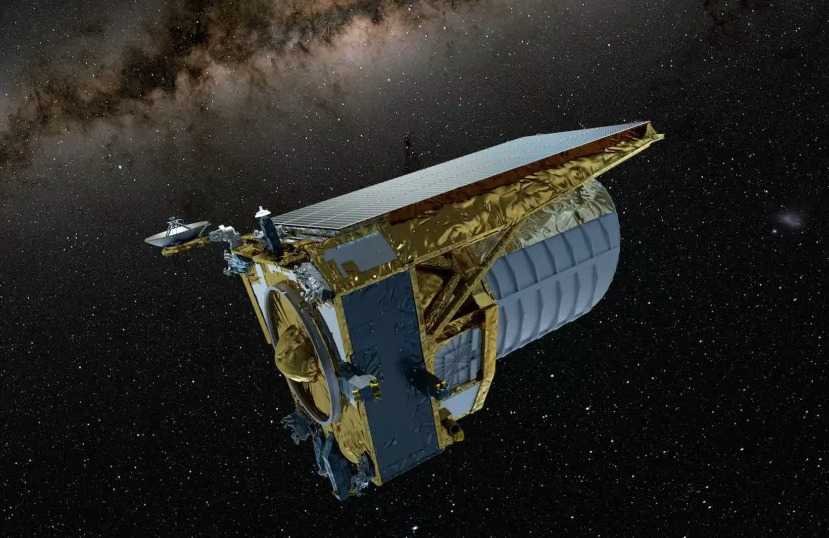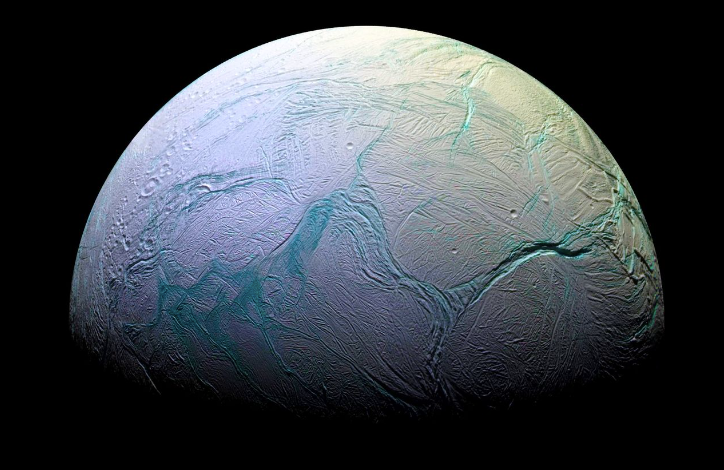Exploring the secrets of the dark universe

Image: ATG/ESA
On Saturday, the European Space Agency is scheduled to channel its inner Darth Vader and turn to the dark side. And by that we mean launch its new Euclid space probe, which aims to study the mysterious “dark universe” – aka dark energy and dark matter – in more detail than ever before.
📅 Background: In 2014, NASA’s Planck mission discovered that all normal matter, including everything humans have ever observed, adds up to less than 5% of the universe😳.
The rest is composed of dark energy (68%) and dark matter (27%), which haven’t ever been actually observed by scientists but were created to explain what would otherwise be impossible observations about the universe.
- Dark matter helps explain what, along with its buddy gravity, is keeping galaxies intact as they rotate. Without the existence of dark matter, these galaxies would have torn apart billions of years ago, since the gravity from their observable matter alone isn’t strong enough to hold them together.
- Dark energy, aka the opposite of gravity, is the answer to why the universe is expanding faster today than ever before, when gravitational laws indicate the opposite should be true. Meaning: gravity pulls things inward, so over time the pace of the universe’s expansion outward should start to slow (but it’s not).
👀 Looking ahead… Once the ESA’s Euclid probe reaches space, it will begin creating a detailed map of how the universe evolved over time by observing billions of galaxies as far as 10 billion light-years away. Astronomers hope this map will reveal more about the precise nature of dark energy, dark matter, and gravity.
Share this!
Recent Science & Emerging Tech stories

Science & Emerging Tech
| June 15, 2023A moon of Saturn contains the first known habitable ocean in space
🌕🌊 A salty ocean beneath the surface of Enceladus, a small moon orbiting Saturn, is the only body of water beyond Earth known to contain all six elements needed to create life, per a new peer-reviewed study published in Nature.

Science & Emerging Tech
| June 14, 2023How to sleep your way to the top of Spanish class
💤🧠 Humans can learn foreign words while we’re sleeping, per a recently unveiled preprint study. Though this DOES come with a caveat – you can’t exactly become fluent in a new language just by listening to words in your sleep. But it sure does seem to help.

Science & Emerging Tech
| June 13, 2023Dr. Deep Sea is trying to extend the human lifespan
🤿🌊 A professor known as “Dr. Deep Sea” just resurfaced after spending a world-record 100 consecutive days underwater to try and help humans live longer, capping off a novel experiment that almost sounds more like the beginning of a Marvel movie than scientific research.
You've made it this far...
Let's make our relationship official, no 💍 or elaborate proposal required. Learn and stay entertained, for free.👇
All of our news is 100% free and you can unsubscribe anytime; the quiz takes ~10 seconds to complete